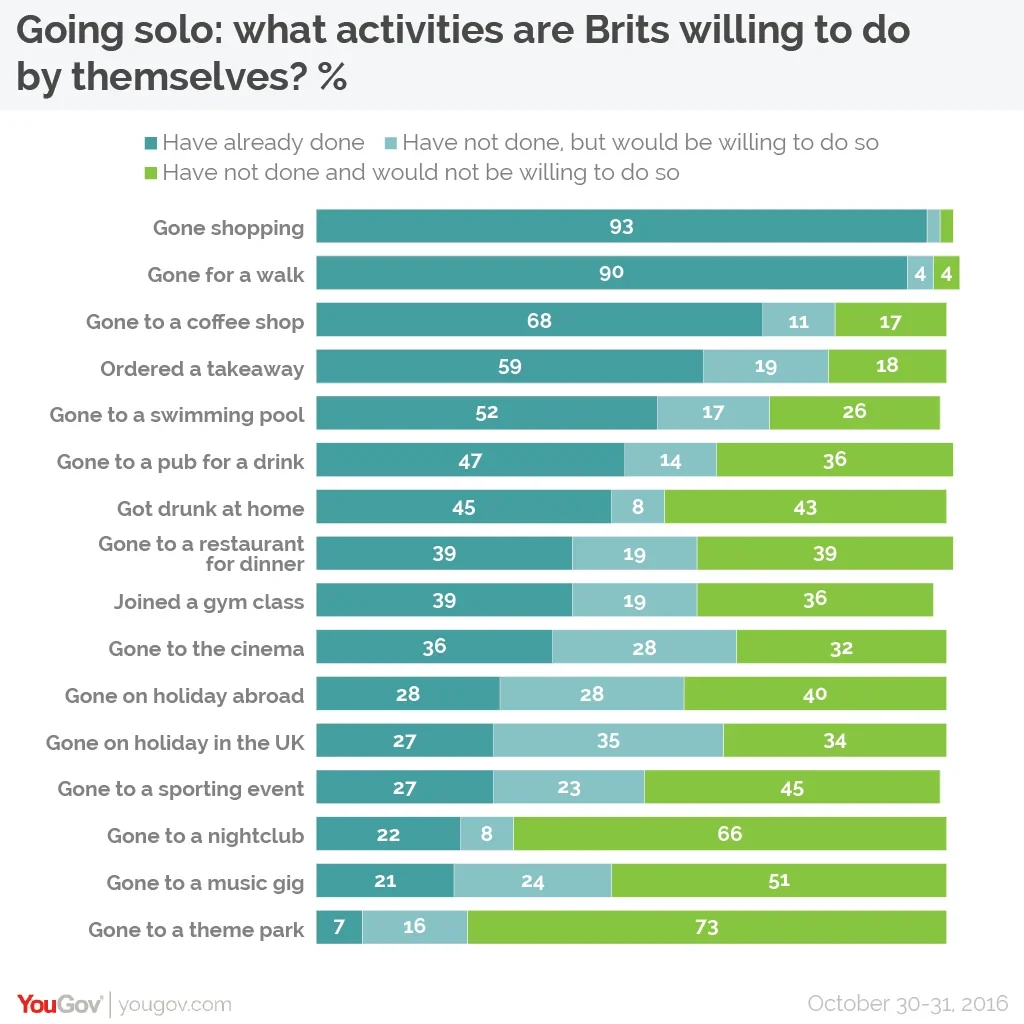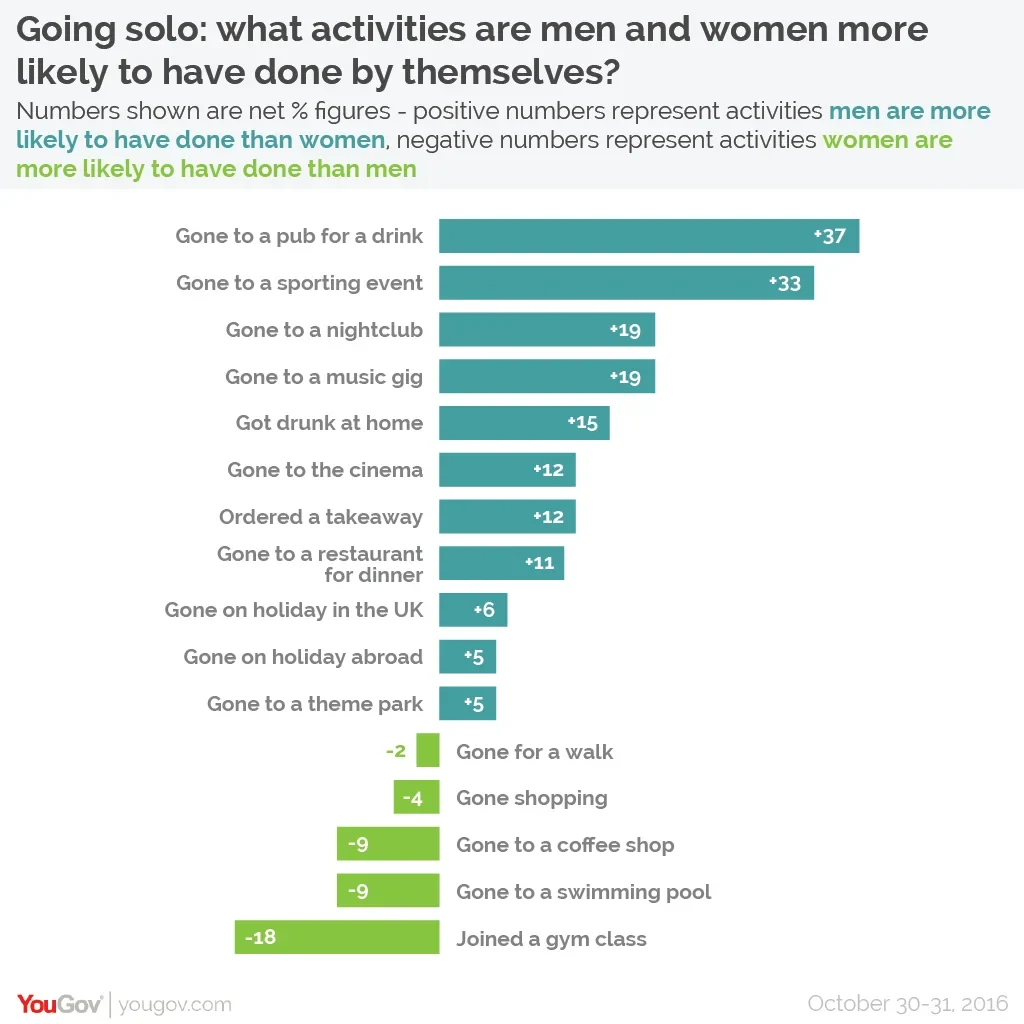Theme parks, gigs and nightclubs are the places most Brits would not go to by themselves
Last Friday was “Singles’ Day” in China. The celebration, which began in the 1990s, is held on 11th November every year – the date chosen because the number “1” represents a lone person. Singles’ Day serves as an occasion for young single people to hold parties for themselves and other singletons, although there is also a heavy retail element too with the event being akin to Black Friday in America.
Of course, being single does have its advantages – not least the freedom to do what you want. You can go, see and do whatever you like without having to compromise for anyone else’s sake. But are people willing to do so? Humans are social beings, after all. That’s why new YouGov research has looked at what activities British people are most to take part in on their own.
Unsurprisingly, the vast majority of Brits have gone shopping and for a walk by themselves, with 93% and 90% respectively saying they have done so. Other popular solo activities include going to a coffee shop, ordering a takeaway and going to a swimming pool, with the majority of people saying they have done these by themselves at some point.

At the other end of the scale, going to a theme park alone the least popular activity. Riding rollercoasters is clearly a group activity in the minds of Britons, with just 7% of people saying they have ever gone by themselves, compared to the nearly three quarters (73%) who say they would never do so. Other top activities that we would avoid doing by ourselves include going to a nightclub (66% say they would never do so) and going to a music gig (51%).
For the most part, men are much more likely than women to have taken part in any of these activities by themselves. This is a conscious choice on the part of women: rather than being willing but unable to indulge in these activities alone, women are specifically against doing these things by themselves.
Going to the pub for a drink by yourself is the most divisive activity between the genders. Two thirds (66%) of men have had a pint in the pub by themselves, compared to 29% of women – by contrast, more than half of women would not be willing to do go to the pub alone, compared to just 21% of men.

Other particularly divisive activities include going to a sporting event, going to a nightclub and going to a gym class (which women are far more likely to have done than men). Some of the differences are obvious – men are simply more likely to be sports fans than women – whilst others could indicate different motivations between men and women for taking part in certain activities. For instance, in the case of going to a nightclub it may well be that for women spending time with friends is the entire purpose of the venture, whilst for men it might be that going to a nightclub serves more as a means to an end…
There is also an interesting distinction between middle and working class people. Middle class people are more likely to say that they have done these activities by themselves than working class people. As with women, though, working class people are set against going alone to these activities rather than being willing but unable.
Given that there is a cost involved for most of these activities, this would perhaps not be surprising is not coupled with a greater willingness among working class people to do these activities by themselves – in fact, again, middle class people are more likely than working class people to say they have not done something by themselves but would be prepared to do so.
It is likely that the reason for this is cost-based. Those activities that working class people are more likely to say they are unwilling to do have heavy cost implications – for instance, going to a restaurant, the gym or on holiday. This would certainly explain why working class people haven’t done these things, but not necessarily why they are unwilling to do them rather than feeling willing but unable. It could be that, with less disposable income on hand, working class people are less prepared to even consider spending money on an activity they can’t share with friends or family.
Photo: iStockphoto









